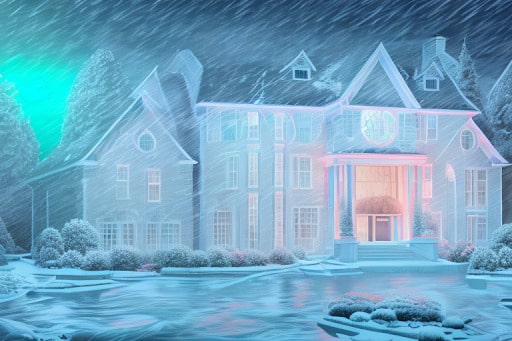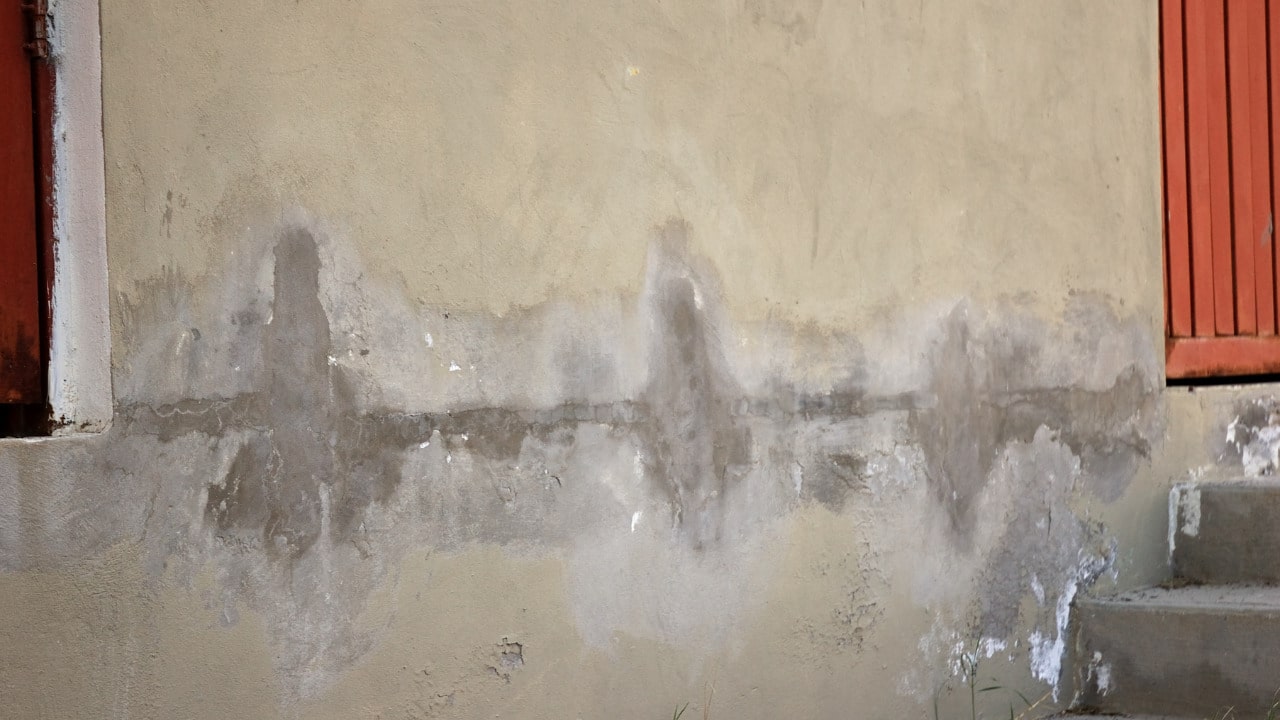Existing basements frequently experience humidity issues, which are frequently misdiagnosed or improperly addressed. This might not be a big deal if the basement is isolated from the living areas above. On the other hand, ductwork or other openings typically connect most basements to the rest of the house.
Your basement is one of the areas most impacted by humidity. When the humidity is too high, the basement can become mold-breeding, while the rest of your house only feels stuffy.
We’ve included some details and advice on the causes of basement humidity and how to combat it throughout the sweltering summer.
Table of Contents
What Are The Main Reasons For Basement Humidity In The Summer?
Rainwater
Some rainwater or groundwater enters the basement without proper grading, gutters, and drains. Flooding or changes in the site’s seasonal climate can cause the underground water table to rise. For this reason, drain tile systems are advised around basement walls, even in sand or gravel soils.
Activities In Your Basement
In certain cases, the water in our basements was either formed there or came from there. People and their actions create moisture within basements. Showers, cooking, and humidifiers are common sources. These activities grow after the basements are finished.
The moisture that remains in fresh concrete after construction is another internal source that can be considered. A new house may need several months or even years to balance its surroundings.
Inappropriate Ventilation
Our basement windows are frequently opened during warmer months to help with ventilation. We can get condensation on the walls and floors if we let humid outside air into our cool basements.
We can identify the reason for the moisture and, eventually, what to do to solve the issue now that we are aware of the potential sources of the water. When they detect this dampness, many homeowners assume they have basement wall leaks, but in reality, the stored moisture results from condensation.
Ways To Control Basement Humidity In The Summer
Know The Right Level Of Humidity In The Basement
You must first understand the situation you are in. You will want a humidity reader, which you can get online or at home improvement stores, to determine this. But even without a humidity measuring tool, the humidity is probably too high if you see condensation on the walls and other surfaces in your basement.
Fix Your Grading
Due to improper grading, rain and groundwater frequently enter basements. Instead of sloping toward the home, the ground surrounding your foundation should do so. Water will build up against your foundation if the drain drains in the wrong direction, eventually finding its way inside.
This frequently occurs when your foundation’s filled earth isn’t adequately compacted. The slope changes when the dirt settles, and water flows opposite your house.
Create a slope away from your house by building the ground around your foundation. This should be at least one inch each foot for a minimum of six feet.
Repair Your Downspouts And Gutters
Rainwater should not contact your home’s foundation by using gutters and downspouts. Rainwater is frequently directed toward your foundation if gutters are missing or not working properly. The soil near your house may become clogged with water as it runs toward it.
There’s a good probability that water will get inside and into your basement if it collects around your foundation. If there aren’t any currently, think about putting in some gutters. At least one downspout should be installed every fifty feet along the roof eave.
Every downspout that isn’t near the foundation needs to have extenders installed. To keep them in good condition, existing gutters should be cleaned frequently.
Place A Dehumidifier In The Basement
You might require a few dehumidifiers, depending on how big your basement is and how bad the humidity issue is. First, get one and assess how it works. You should be fine if the humidity can be reduced.
Install An Appropriate Ventilation System
Increasing airflow will assist reduce humidity and stuffiness. Your alternatives include installing a separate mini-split air conditioner or making do with a few fans here and there. You may even link your basement to the main HVAC system.
Install insulation in your basement to prevent warmer outside air and water vapor from leaking through cracks and gaps near vents and pipes. Additionally, you might insulate pipes based on the season.
Fill Foundation Cracks And Gaps
There is a good chance that water will find its way to your basement if your foundation has cracks. The water may, in certain cases, even be the reason for the fissures. As a result of the soil’s poor drainage, water might induce cracks in the foundation.
Your options will differ based on the origin of the cracks. If hydrostatic pressure is to blame for the cracks, fixing your outside drainage system should assist. The cause should have been fixed, but the cracks will still need to be fixed.
If structural issues contributed to the cracks, proper footing and connections must be installed to close the openings.
Conclusion
The idea of using an inside membrane or coating to address the moisture issue in a basement is tempting. It costs less than a drainage system and, in some instances, appears to function for a while.
Nevertheless, the water is still under the basement, and ultimately these systems degrade or merely redirect the water to another entrance into the basement.
While it can help with the symptoms of humidity and odor, a dehumidifier cannot fix the underlying issue. Before insulating, the walls must be dry. Before carpeting, slabs must be warm and dry. Do not put off taking action if your basement shows signs of wetness. The repairs will need to be bigger and more expensive the longer the issue persists.





